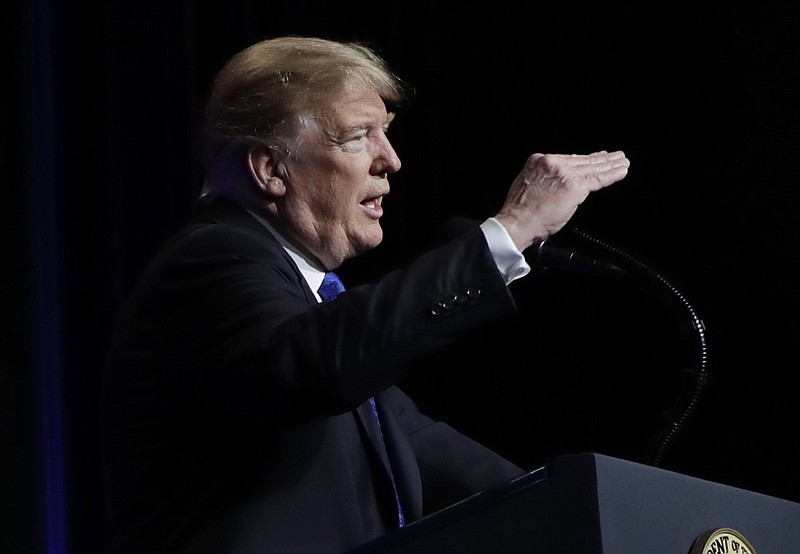WASHINGTON - The Washington Post's report that President Trump "has gone to extraordinary lengths to conceal details of his conversations with Russian President Vladimir Putin" - including taking away an interpreter's notes and instructing the person not to discuss what was said even with senior officials of his own administration - has raised hackles in Washington. Some have gone so far as to suggest this is evidence that the president is a secret Russian asset.
More likely it is evidence that the president feels he cannot trust those around him not to leak the details of his private conversations with foreign leaders. Why would he think that? Because he has repeatedly seen the classified details of those conversations leak to the media.
For example, in 2017, someone in the administration leaked a full transcript of Trump's phone call with Australian Prime Minister Malcolm Turnbull to The Post, during which the president berated Turnbull about a refugee swap deal Turnbull had made with President Barack Obama. The public exposure of this exchange was an embarrassment for the Australian leader and damaged our relationship with a critical foreign ally.
An administration official also provided The Post with a full transcript of Trump's phone call with Mexican President Enrique Pena Nieto, in which he discussed finessing their dispute over who would pay for a border wall - with the Mexican leader telling Trump that "I have recognized the right of any government to protect its borders as it deems necessary" and "let us look for a creative way to jump over this obstacle" - embarrassing the Mexican leader.
Also leaked were two of Trump's conversations with British Prime Minister Theresa May - including one in which he complained about his coverage in the British media (to which May awkwardly explained that she could not control the media, telling the president that "we are not North Korea") and, a few months later, another call in which Trump, according to The Post, "berated May for Britain not doing enough, in his assessment, to contain Iran questioned her over Brexit and complained about the trade deals he sees as unfair with European countries." That conversation reportedly left May and her aides "shaken."
And, of course, there are the voluminous leaks of his communications with Russian officials.
Senior officials are angry at being cut out of Trump's meetings with Russian President Vladimir Putin, anonymously complaining to the media that "there is no detailed record, even in classified files, of Trump's face-to-face interactions with the Russian leader at five locations over the past two years," according to The Post. Well, maybe that's because the classified details of his conversations keep ending up in the media.
The Post notes that Trump is trying to shield his "communications with Putin from public scrutiny." Of course he is. A president's private conversations with foreign leaders are supposed to be shielded from public scrutiny. Every president conducts diplomacy behind the scenes and out of public view. That's why transcripts of any president's phone calls and notes of his meetings are marked classified. They are secret. Sharing secrets with the media is illegal.
To be clear, some of what Trump reportedly said in these private conversations is indeed outrageous. But he is the president, and every president has the right to hold confidential conversations with foreign leaders without the details ending up on the front pages. The fact that he has responded to these serial leaks by restricting access to his interactions with Putin is not evidence that Trump is a Russian spy; it is evidence that there are people around him who have no compunction about breaking the law and harming national security by leaking what he says to the media. That is not just an outrage. It is a crime.
The Washington Post Writers Group
